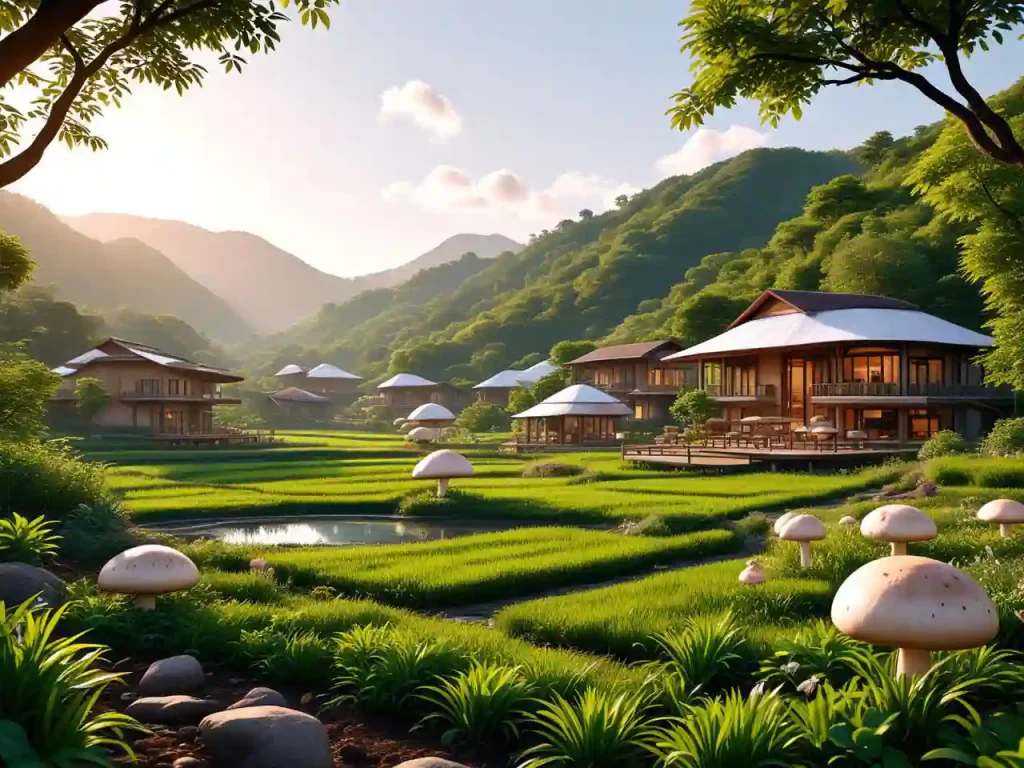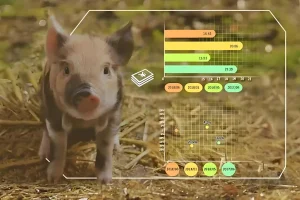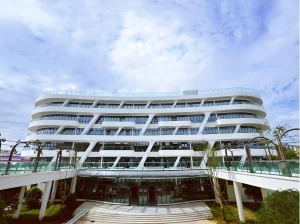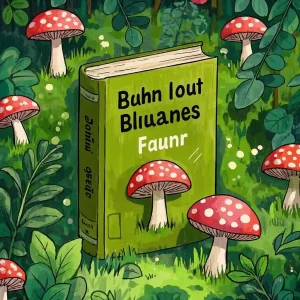Perched 1,200 meters above sea level in Beijing’s Fangshan District, Dongcun village has emerged as a global case study in sustainable rural transformation. Once a struggling coal-mining town, it now thrives as an eco-tourism hotspot, all thanks to a humble yet transformative resource: mushrooms. Through cutting-edge cultivation techniques, culinary creativity, and strategic tourism development, Dongcun’s story underscores how science and tradition can converge to lift communities out of poverty—with lessons applicable worldwide.

The Visionary Behind the Mushroom Revolution
Dongcun’s resurgence began with Professor Liu Yu, a mycologist and director of the Beijing Academy of Agriculture and Forestry’s Edible Fungi Research Institute. Invited by Party Secretary Sun Guangliang in 2006, Liu arrived as the village phased out coal mining. After failed experiments in fox farming and strawberries, he proposed underforest mushroom farming—a sustainable model leveraging Dongcun’s natural microclimate.
“Science must grow alongside trust,” Liu emphasizes, a philosophy that would redefine the village’s future.
Culinary Innovation & Eco-Tourism: A Two-Pronged Strategy
By 2008, Dongcun produced premium mushrooms but faced low margins in wholesale markets. Liu’s solution? A dual approach to value creation:
- Gourmet Mushroom Cuisine: Partnering with chefs from Chongqing’s Beijing office, he created a 14-dish mushroom banquet, training villagers in high-end cooking. Today, Dongcun’s mushroom feasts rank among Beijing’s top rural culinary attractions.
- Cliffside Cabins & Agritourism: Traditional farmhouses were converted into 20 eco-friendly cliffside cabins, blending mushroom picking with panoramic mountain views. The “Cloud Terrace” experience now features in Beijing’s Top 10 Rural Tourism Routes.
Scalable Science: How Dongcun’s Model Works
Liu’s framework prioritizes sustainability and replicability:
- Crop Diversity: 10+ species (shiitake, lion’s mane) ensure year-round harvests.
- Precision Farming: 90% yield stability through data-driven techniques.
- Economic Impact: 109 greenhouses generate ¥19,600 per capita income—six times 2005 levels.
Inspiring a Regional Renaissance
Dongcun’s success has rippled across China:
- Baihutou Village (Mentougou): Transformed from derelict mining town to “three-season wonderland,” with two mushroom greenhouses yielding ¥80,000 annually.
- Hebei Province: Customized strategies in Fengning and Zhangbei counties boost household incomes by ¥3,000–7,000.
Building Resilience: Safeguarding Against Poverty Relapse
To prevent relapse into poverty, Liu champions systemic safeguards:
- Risk Management: Bank partnerships and insurance protect farmers from market fluctuations.
- Cross-Regional Collaboration: Co-founded the Beijing-Tianjin-Hebei Edible Fungi Innovation Alliance.
- Policy Advocacy: Push for government-backed infrastructure to stabilize supply chains.
Global Lessons from a Mountain Village
Dongcun’s journey offers a blueprint for rural revitalization that resonates globally:
- Sustainability as Profit Driver: Balancing ecological stewardship with economic growth.
- Science as Equalizer: Bridging technical expertise with local knowledge.
- Tourism as Catalyst: Fusing agritourism with cultural storytelling.
As Beijing Mayor Chen Jining noted during a 2021 visit: “Dongcun proves that green mountains are indeed golden mountains.”
More:
- 2025: The Year Agriculture Enters the AI Era – A New Wave of Transformation on the Horizon IAgricultural AI Revolution
- Algarikon Zero Project: How a Spanish Firm Transforms Invasive Algae for Edible Mushroom Cultivation
- 🔍 Research Uncovers Key Mechanisms of Morel Strain Degradation
- Spain: Edible Mushrooms Found to Alleviate the “Salty” Dilemma of the Meat Industry
- Yunnan’s Morel Mushroom Industry: Current Status and Prospects


